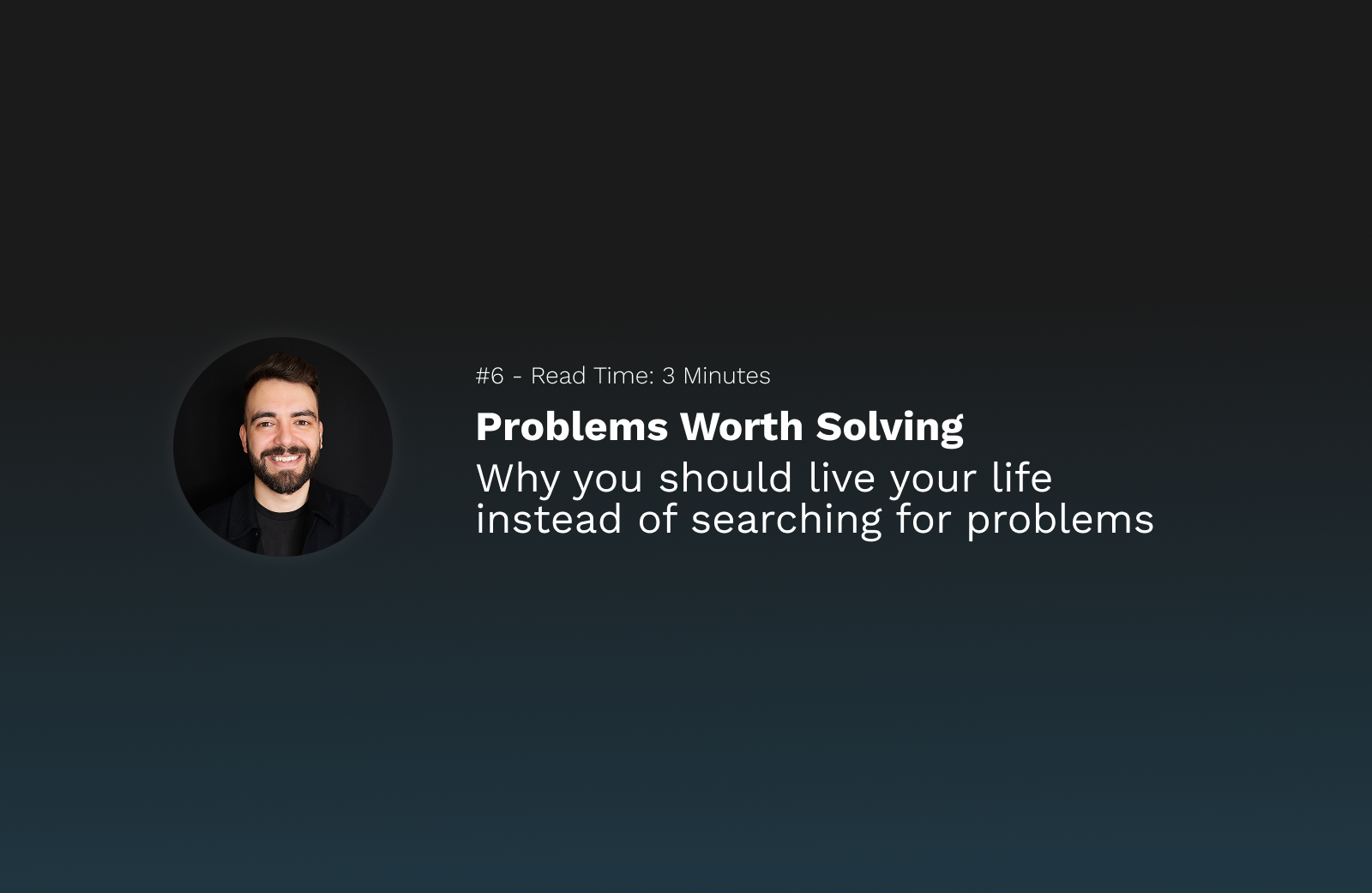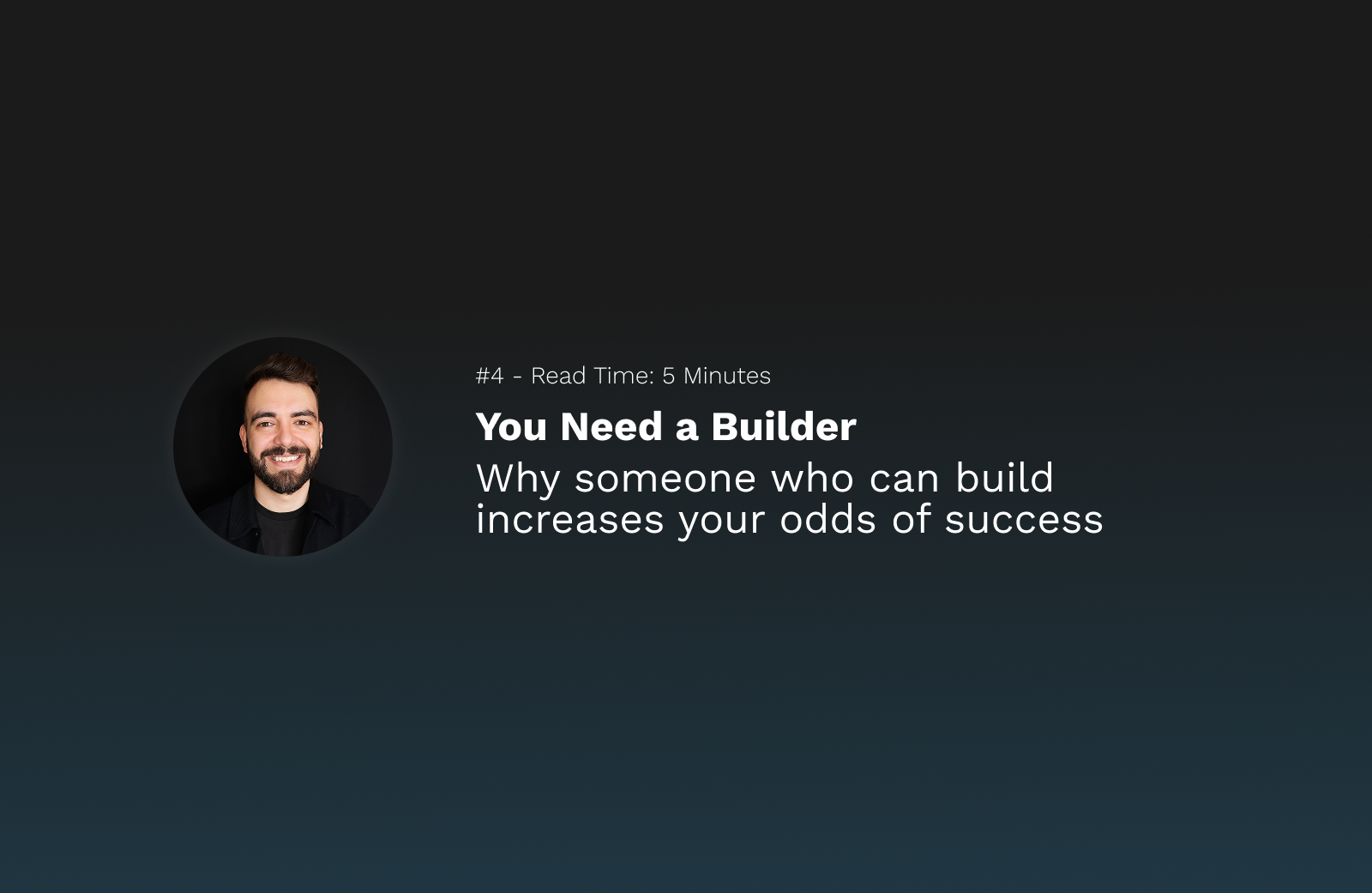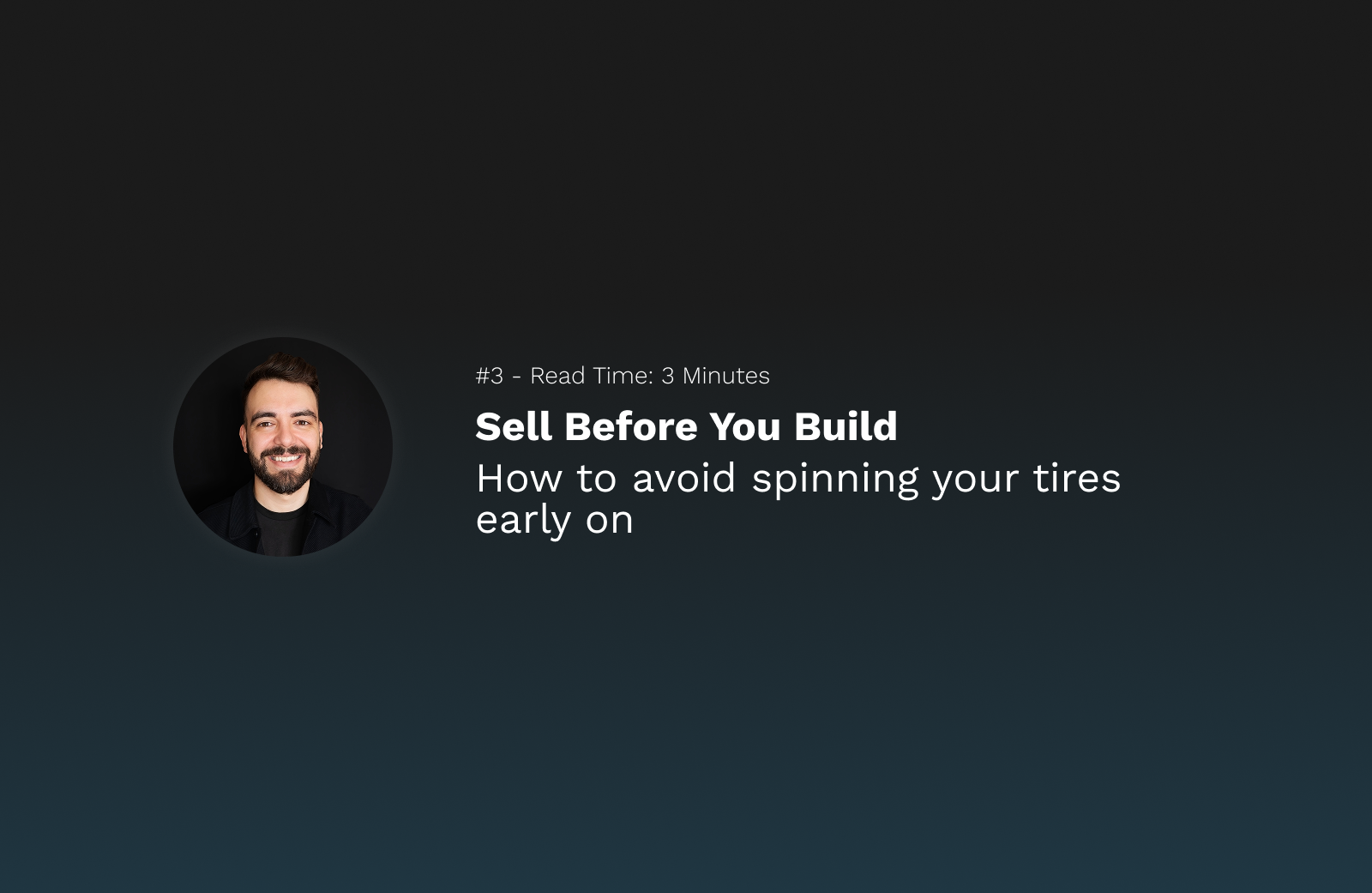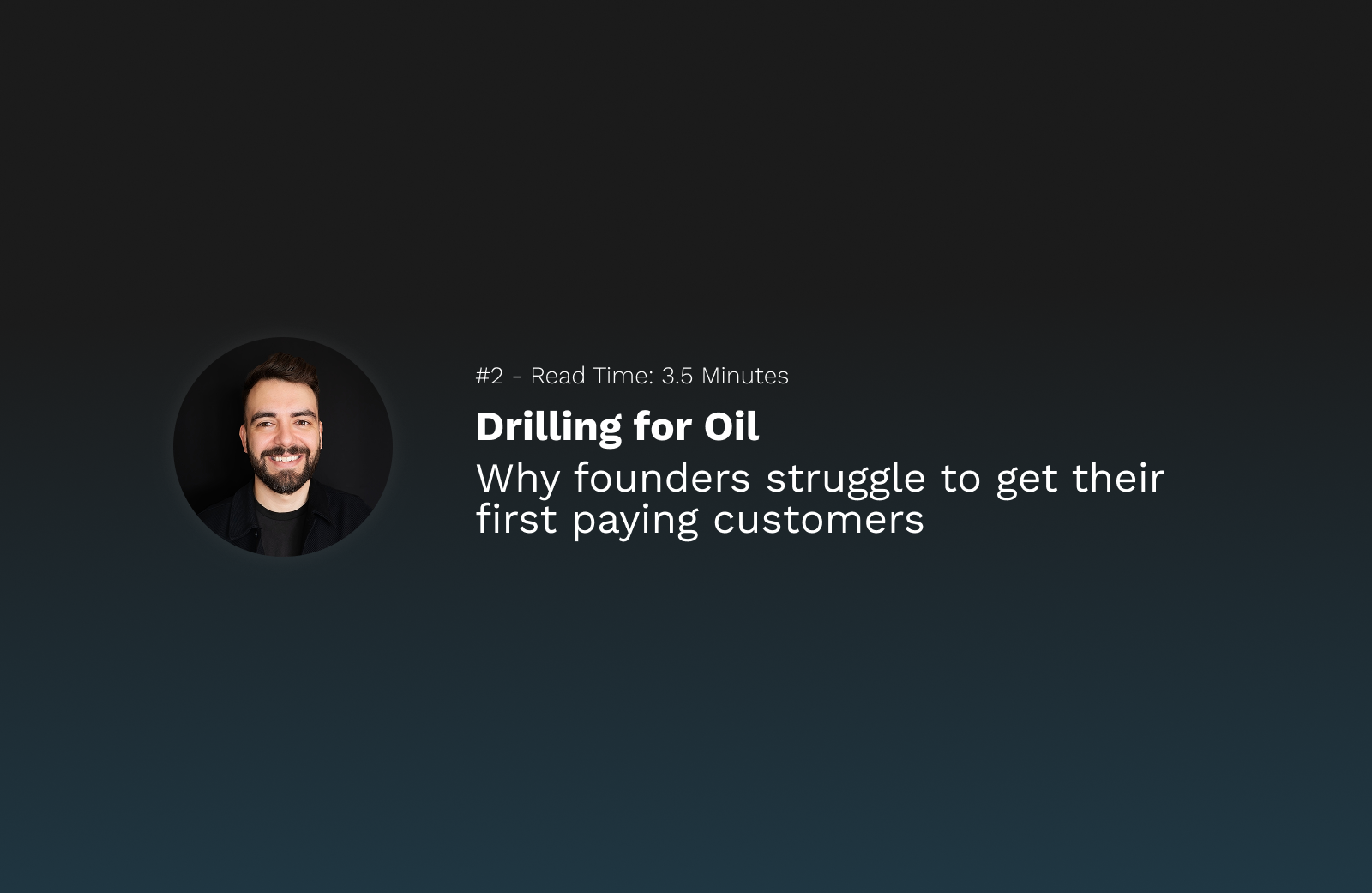Money is for Speed, not Discovery
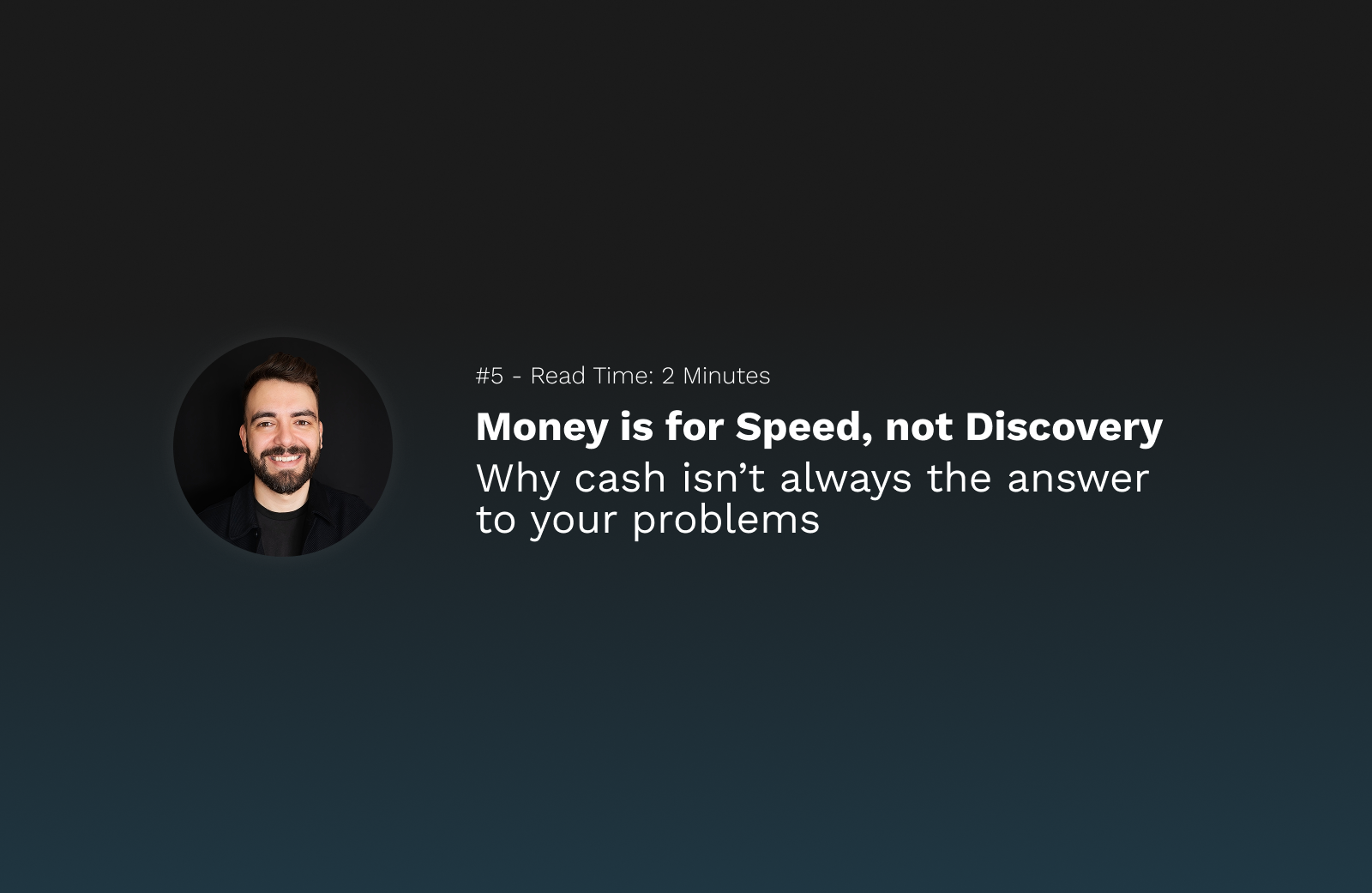
“If I just had more money, I could get more customers”
This is a common thing to hear from an early stage start-up founder.
It sounds logical.
Yet, it’s rarely true.
Because they do not have a repeatable process (yet).
Every new customer looks different.
Or they are buying for different reasons.
Or they came from a limited personal network.
And so on.
There’s no clarity on where to put their energy.
Money doesn’t buy you clarity.
Focus and experimentation buys you clarity.
Early on, money has strings
Before you are ready to scale, money can be an obstacle of its own.
There are two main ways this seems to manifest:
- Enabling distractions
- Hiring out fundamentals
#1. Enabling distractions
Founders are generally speaking, fickle.
And yet, they are adamant.
It is the combination of natural dissatisfaction and self confidence that makes them perfectly suited for the role.
This also means they are susceptible to shiny things.
And when you lack the understanding and data to know what to prioritize, everything is a shiny thing.
In some cases the money has literal constraints (e.g. grants) that pull you away from your core product.
In other cases, it simply staves off the fear in the back of your mind that you may run out of money and you get overly comfortable.
The more money early on, the less pressure you will likely feel to pursue sales.
“We’ve got time to figure this out”
And so you wander.
Until you can’t afford to wander.
And then you’re months (or years) behind the competition with little to no market traction to show for it.
Hunger early on is a powerful force.
#2. Hiring out fundamentals
By “fundamentals” I mean core understandings about your product, your target audience and your sales process that should belong initially to a founder.
Otherwise, what are the founders there for?
Sales is the common one.
A team will conclude that they need to hire a sales person so that they can focus on the product.
Missing the point that a sales person is good at selling, not figuring out how to sell a product that is in development.
It is the “unproven product” vs “proven product” issue I talk about often.
What works for a proven product is generally useless for unproven products.
And if as a founder have not sold your product to someone, how are you going to show someone you’re paying to sell it for you?
What is a good use of money, early on?
If you find yourself in the position of having cash early, pay yourself.
Go full time.
Max out your capacity.
Generate momentum.
Then worry about scaling.
Until next time, J

